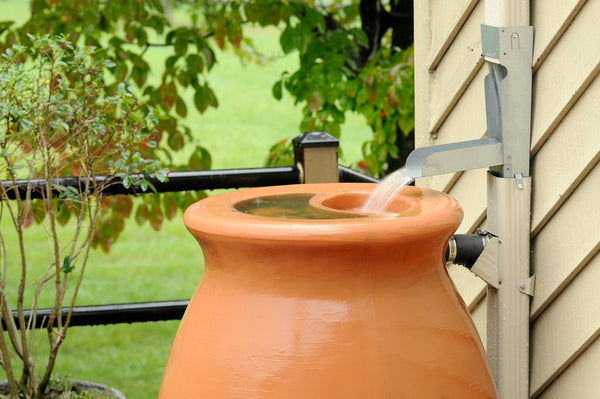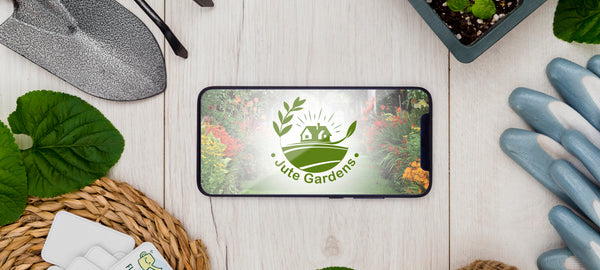
Ideas to Reduce, Reuse and Recycle in the Garden
There are several ways that you can reduce, reuse and recycle in your garden. Reducing, reusing and recycling waste in our gardens helps save landfill space by keeping useful materials out. In addition, the amount of energy and natural resources needed to produce or collect the raw materials and manufacture the products we use in the garden are reduced.
Reduce:
Avoid Plastics:
Reduce the use of plastics in your garden. Plastics have many harmful effects on our environment. They harm marine and human health. They litter beaches and landscapes. They clog waste streams and landfills. Toxic chemicals leach out of plastics and are found in the blood and tissue of nearly all of us. Exposure to them is linked to cancers, birth defects, impaired immunity, endocrine disruption, and other ailments. And perhaps worst of all, plastics never really go away. Plastics cannot biodegrade. Instead, they simply break down over many, many years into smaller and smaller pieces. It is difficult to avoid plastics these days in our local garden centers. Most plants come already planted in plastic pots. I recommend starting your plants from seed and replacing plastic grow pots with biodegradable grow pots made from jute fiber. Grow pots made from jute fiber can be planted directly into the ground after use where they will compost naturally in the soil.

Limit Gas-Powered Tools:
Limit your use of gas-powered tools. Using a gas-powered lawnmower pollutes the air, and that pollution can add up if you're mowing every week. Try using human-powered tools such as push mowers, hand clippers, and rakes, or reduce the amount of lawn area that needs maintenance. Using a gasoline-powered mower for an hour pollutes 10 to 12 times more than the average car.
Minimize Lawns:
Reduce the size of your lawn. Or better yet, go lawn-free altogether. A gorgeous, green, and weed-free lawn uses a lot of resources. Water and fertilizer are needed to keep most lawns looking in top shape. You can have more sustainable landscaping by reducing that area and replacing it with easy-care perennial ornamental grasses, low-growing shrubs, or groundcovers.
Reuse:
Check Out Yard Sales:
Get into the habit of combing through local yard sales for used garden hoes, shovels, watering cans, and more. And if you’re lucky, you might find fun, reusable objects for decorating your gardens. Items such as distressed metals, unusual sculptures, or stained glass. You can repurpose old furniture, tires, old pots, and sports equipment as planters for the garden. One typical Canadian gardening hack is using an old canoe as a garden bed.
Reuse Bottles:
A simple way to prolong the life of empty glass jars and bottles is by using them in the garden. You can use them as planters or as slow-release irrigation systems for garden beds.
Kitchen Scraps:
Don’t throw away your kitchen scraps. Instead, consider adding them to your compost or directly to your garden for added nutrients. High in acidity, coffee grounds can be tossed directly into the soil or added to water to lower PH levels and aid acid-loving plants like tomatoes and blueberry bushes. Composting banana peels can transfer nutrients like potassium and nitrogen into the soil. Like banana peels and coffee grounds, eggshells can be ground up and added to soil to return nutrients to the ground like calcium. Dried grass contains carbon-rich ingredients to compost along with cardboard and newspaper.
Recycle:
Check Around the House:
There are likely items in your house or apartment now that could be recycled for use in your garden. How about popsicle sticks to label your plants? Old bricks can be used to build separations between lines of vegetables. I love to eat mushrooms. My husband had the brilliant idea to recycle the plastic containers that grocery store mushrooms come in for seed starters. Today many of our plants started in those containers.
Recycle Your Water:
In addition to collecting water in rain barrels, I recommend recycling the greywater you have in your home. Greywater is gently used water that may contain traces of dirt, food, grease, hair, and some mild household cleaning products. You can water your garden with greywater. Place a lidded plastic storage bin in your kitchen or near the door to the outside. As you cook, clean, shower, or brush your teeth, collect the excess water in bowls and add it to the storage bin to be used later in the garden. However, you should not let greywater sit around for more than 24 hours because it can develop bacteria. And never use blackwater in your garden. Blackwater is water that has come into contact with feces, either from the toilet or diapers. It can carry pathogens that are dangerous for you and your plants.
When you reduce, reuse and recycle in the garden you save money, minimize pollution and support your local community.

